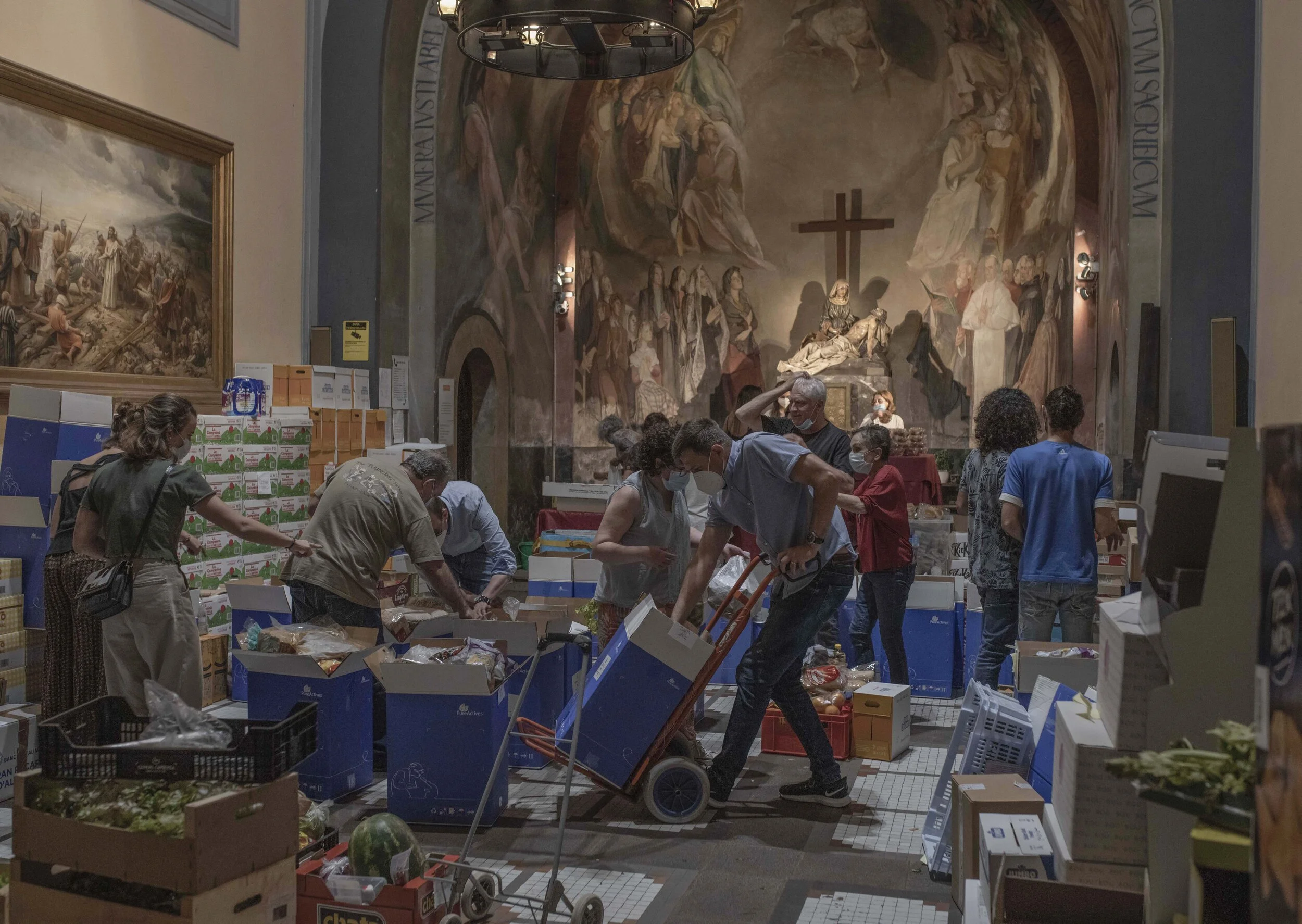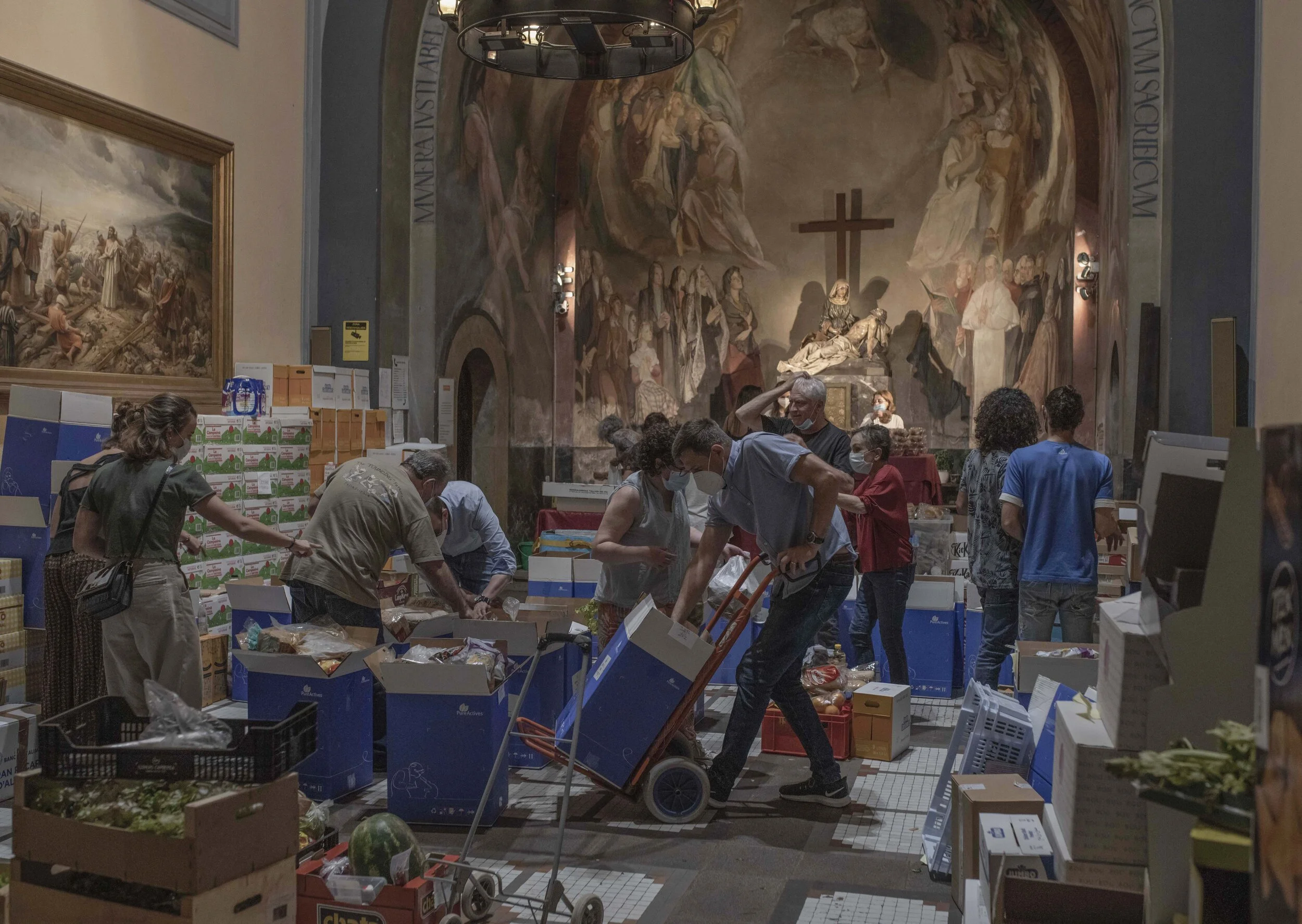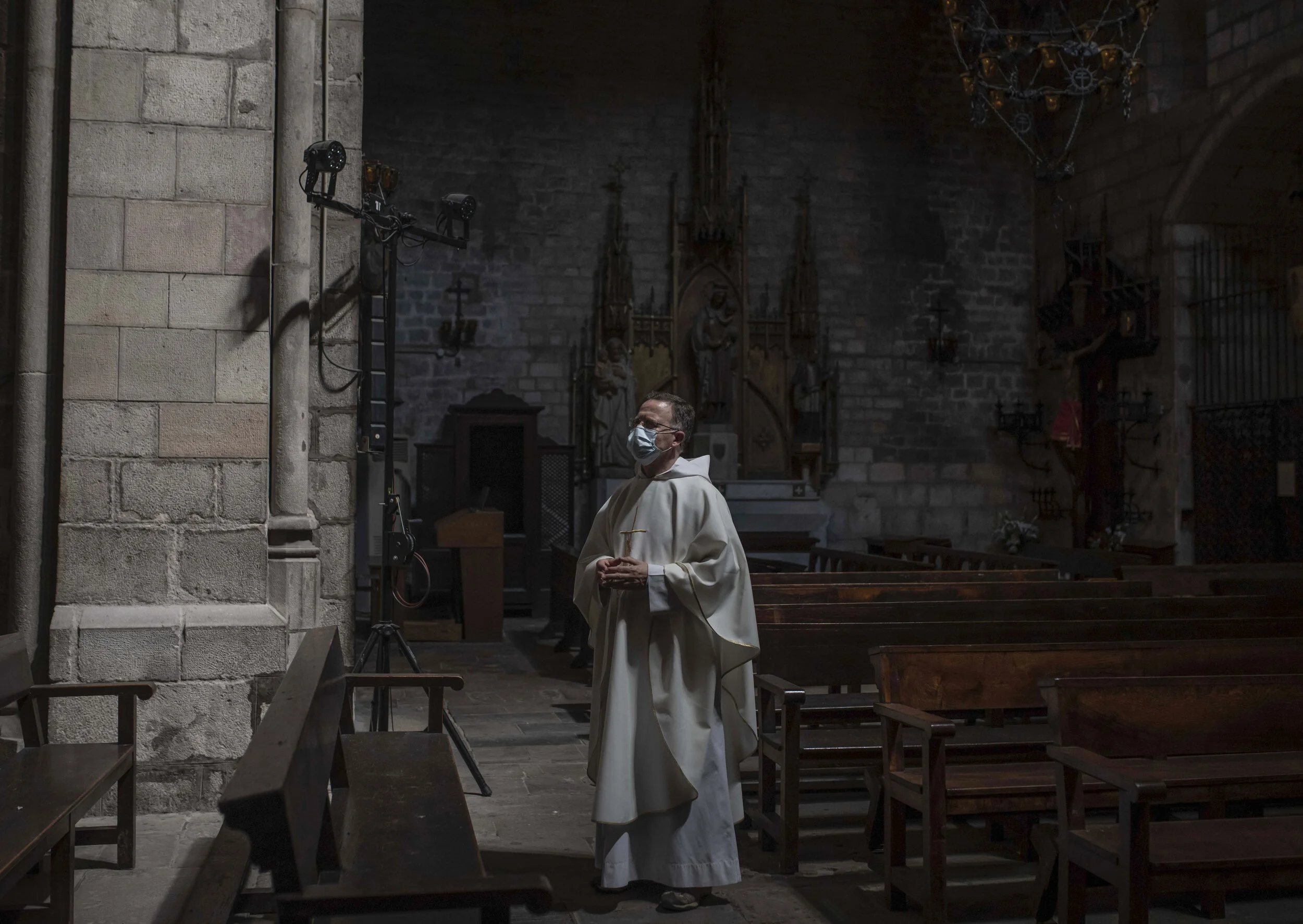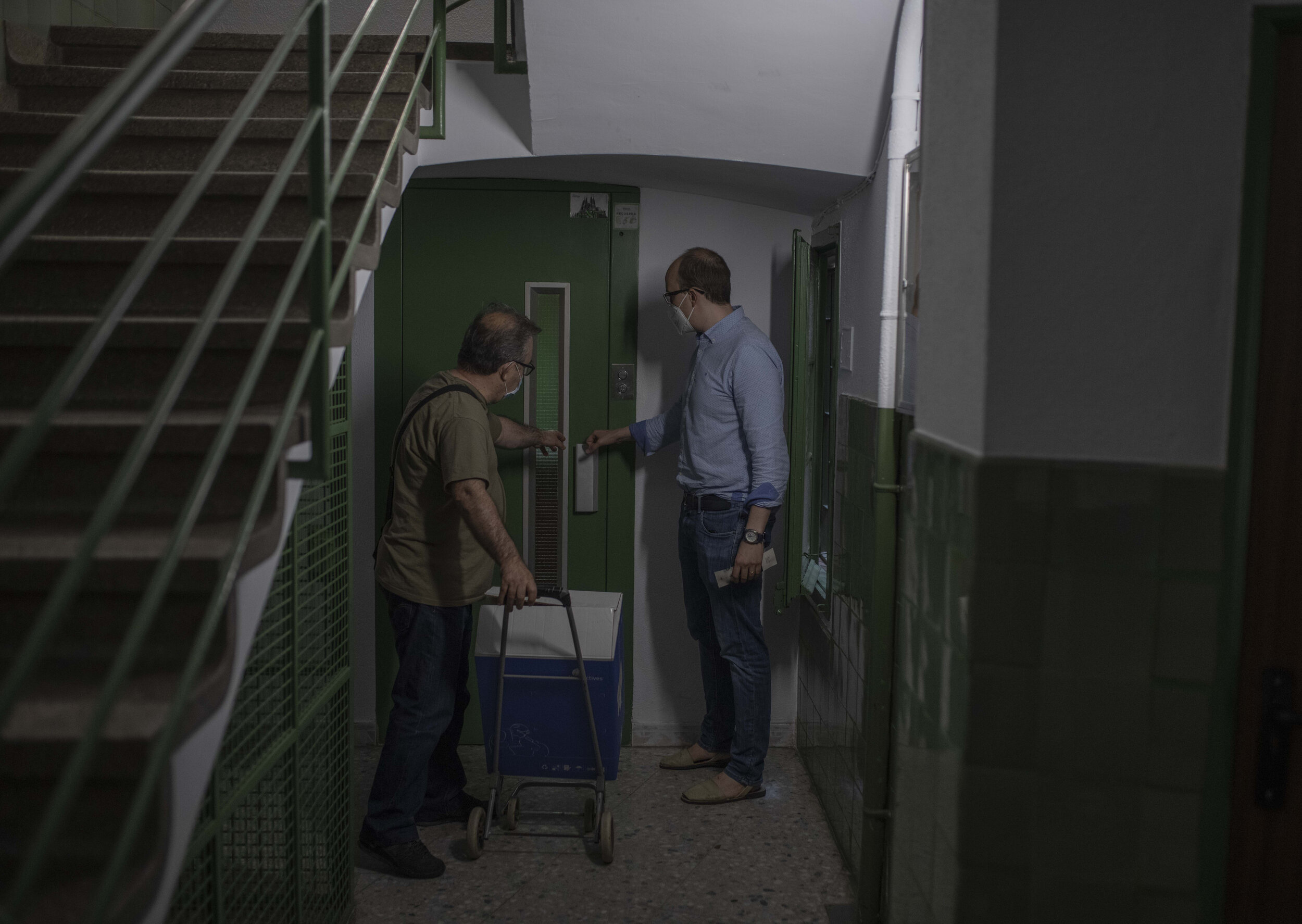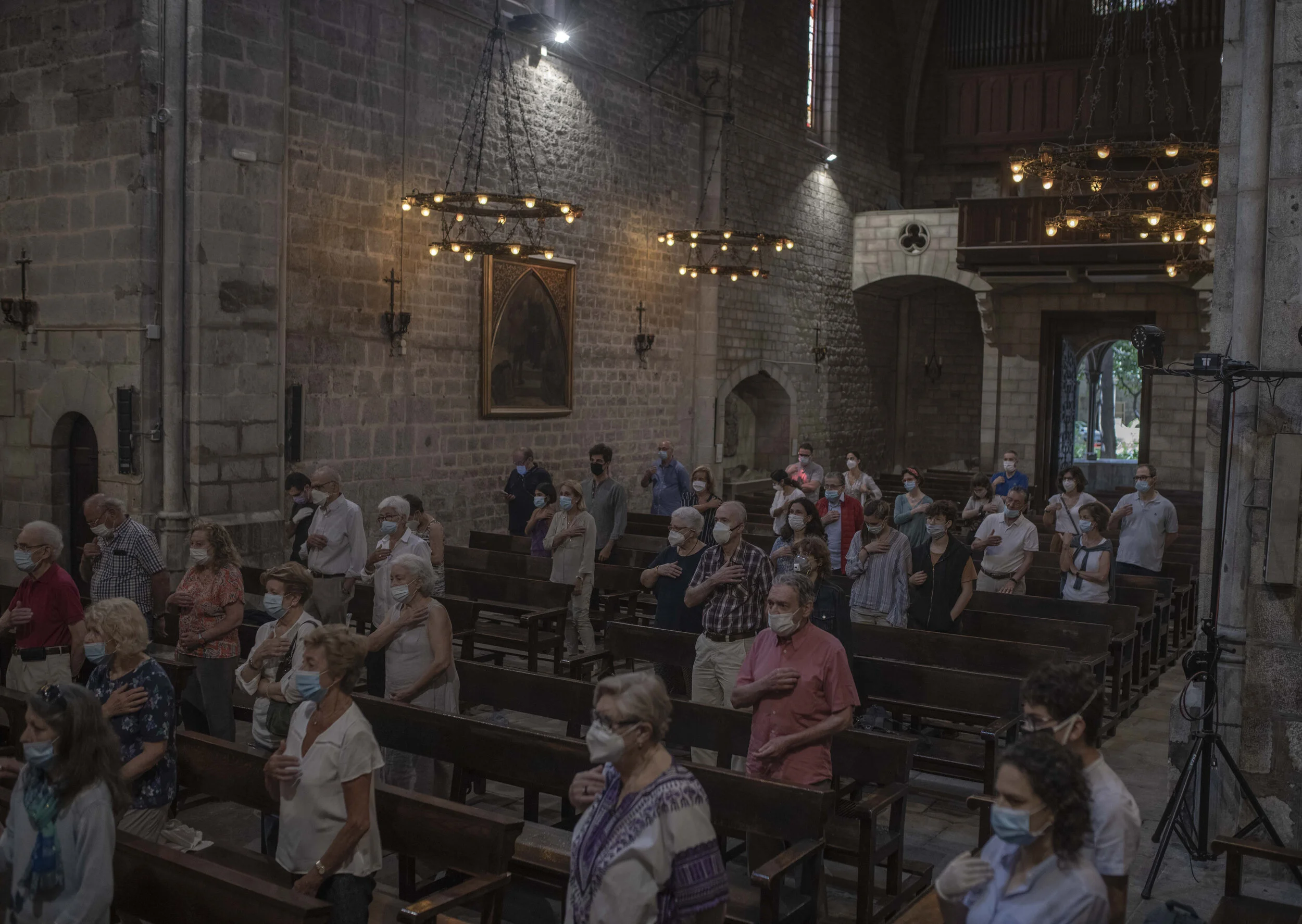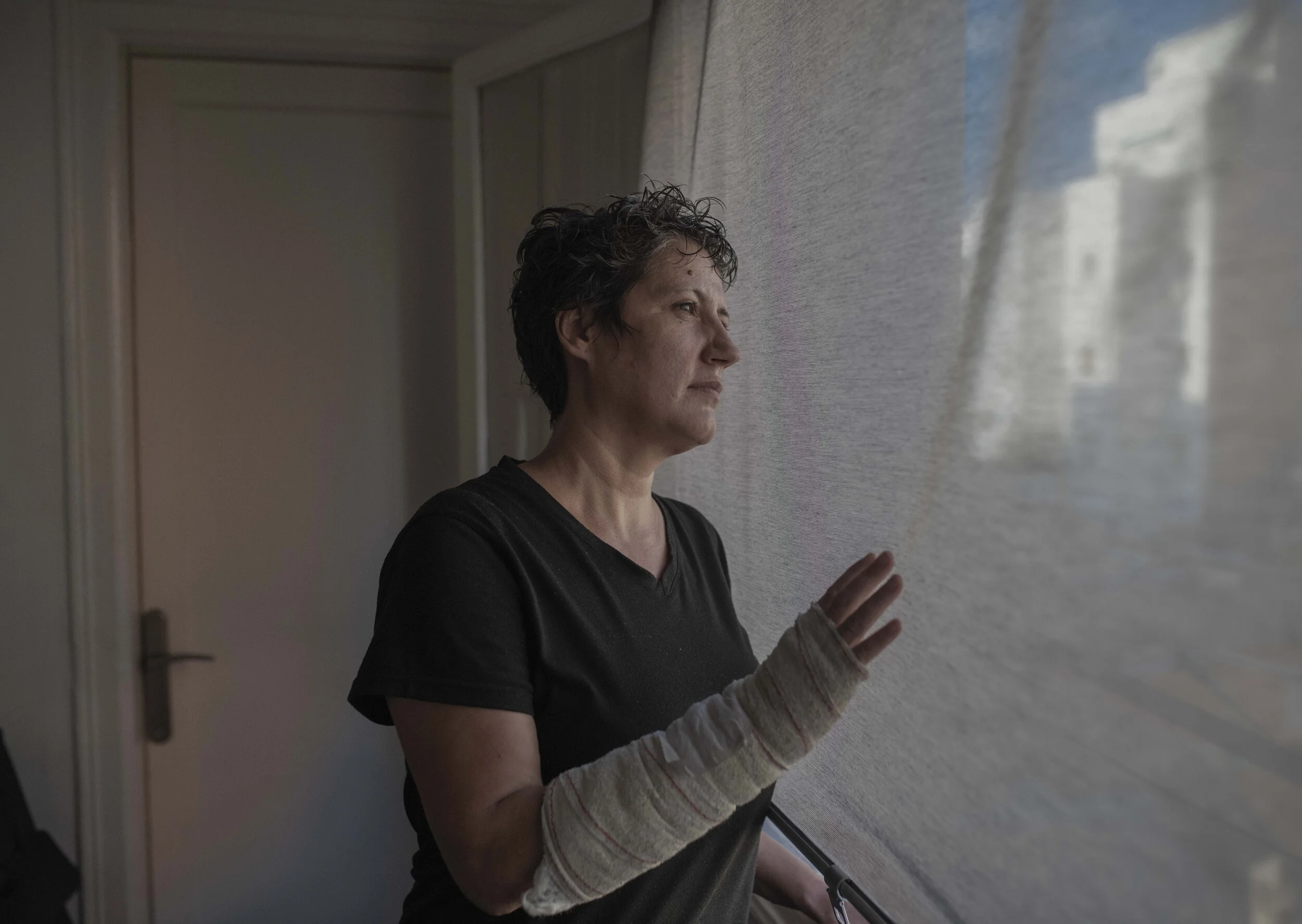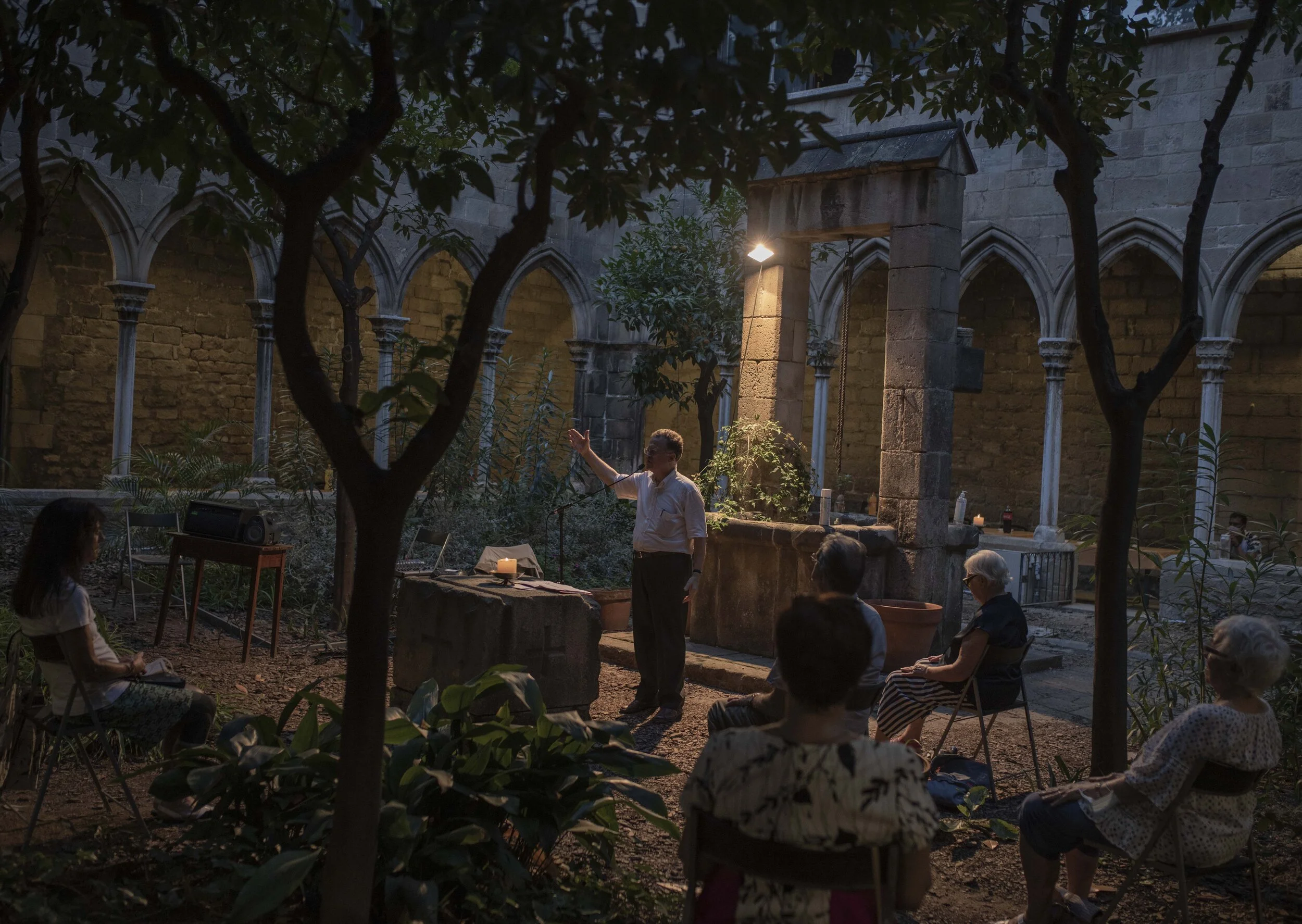“The church is like a field hospital that welcomes the wounded”, were the words of Pope Francis that inspired Peio Sánchez, rector and doctor of theology and professor, Xavier Morlans, vicar and doctor of theology and professor, and Victòria Molins, nun, writer, and journalist, to found in 2017 the Santa Anna Field Hospital in a 12th-century monastery located in the heart of Barcelona.
Before the pandemic, Santa Anna was a place where some of the city's 3,000 homeless inhabitants could rest during the day, and receive assistance. With its doors closed since March due to COVID-19, the Field Hospital has been providing support and food not only to the homeless but to people who before the pandemic had a job and were able to pay rent.
"We have been taken everything away, and the government has not taken care of us. We are invisible", says Galindo, "I never would have imagined that I would find myself in this situation". Galindo, who was employed in a bakery, was fired in March, and the economic support provided by the government and her savings weren't enough to support the price of the rent where she and her husband, who also found himself unemployed, lived. Now, they live in a room in a shared apartment, in the suburbs of the city.
Galindo, it's just one case among many, where the pandemic has exposed and accelerated a weak economic system suffered by many middle-class citizens since the last financial crisis that hit hard the country in 2008.
In Spain, almost 1.1 million jobs were lost in the second quarter of 2020, and the economy entered a technical recession after recording a 17.8% fall in the gross domestic product (GDP) between April and June according to the National Institute of Statistics (INE). Job destruction in the first half of the year was nearly three times higher in Spain than in other European countries according to Eurostat, and the coronavirus crisis continues to have a devastating effect on the Spanish labor market.
